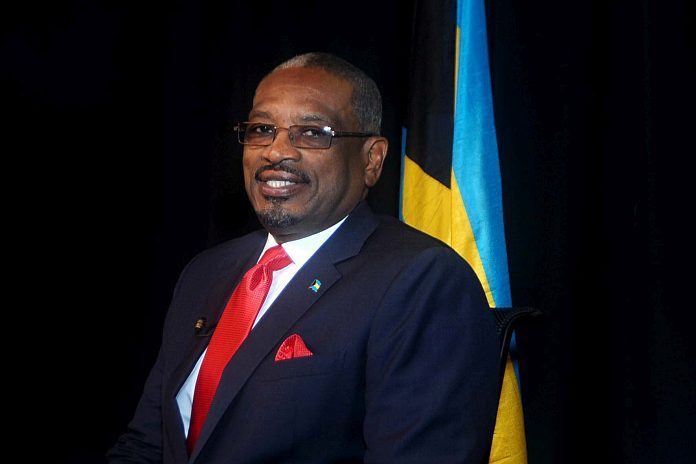By Chester Robards
NASSAU, Bahamas — Bahamians must find ways to build structures much more hurricane-resistant since hurricane Dorian ravaged parts of Abaco and Grand Bahama, prime minister Dr Hubert Minnis said [Tuesday night], adding that Dorian has forced The Bahamas to rethink its construction and resilience.
Prime minister Minnis made his remarks as the keynote speaker at the opening ceremony of the Caribbean Hotel and Tourism Association’s (CHTA) Caribbean Travel Marketplace at Baha Mar resort, explained that building code enforcement also has to be reconsidered in a post-Dorian Bahamas.
“We must find ways to build and where possible retrofit our homes, our buildings and our power and water infrastructure so that they are far more hurricane resilient to both wind and surging waters,” Minnis said.
“We must rethink how we ensure the enforcement of building codes and we must rethink our regulations regarding how close we will allow any construction on our shorelines. The good news is that we are receiving scores of recommendations for our review and consideration from both international and Bahamian experts and companies.”
Minnis said The Bahamas will continue to review offers made during a recent pledge conference, to assist this country with “homebuilding and repair, educational assistance, renewable energy partnerships, relief aid, grants, direct assistance to storm victims, parks restoration, loans, and financing”.
“Let me emphasize and repeat that an offer of a pledge of assistance is not the same as the acceptance of an offer,” he said. “We will review the various offers and pledges and decide on those that are best for The Bahamas.”
The prime minister reminded the CHTA delegates and marketplace attendees that the Caribbean contributes less than developed countries to the problem of global warming, but remains some of the most vulnerable to its effects.
“As more carbon dioxide goes into the oceans, more acid is produced and coral and marine life are at greater peril of being destroyed,” Minnis said.
“The Bahamas, as a part of CARICOM (Caribbean Community), will continue to raise our voice in addressing the global climate emergency. At the same time, we must be seen to be physicians healing ourselves through various national and regional programs.
“We must also continue to combat pollution, including the effects of single-use plastics which are clogging our oceans, killing marine life and threatening human health. I note the aggressive and ambitious program just announced by the People’s Republic of China, the second-largest economy in the world, to ban single-use plastics.”
Minnis reminded the delegation that if Dorian had struck New Providence, the economic center of The Bahamas would have been critically set back.
“Contemplate for a moment what would have happened to our country if Dorian had hit and lingered over New Providence and Paradise Island, as it hit and lingered over Abaco and East Grand Bahama,” he said.
“New Providence and Paradise Island account for more than 70 percent of our population and more than 70 percent of our GDP, yet New Providence and Paradise Island account for less than 2 percent of our landmass. This concentration of population and GDP is forcing us to reconsider ways to diversify our tourism economic centers, even while we build greater resilience in and continue tourism growth on New Providence and Paradise Island.”
Republished with permission of the Nassau Guardian





